Want to attend the course but can’t make it on this date?
Fill in your details below and we’ll notify you when we next present a course in this area:
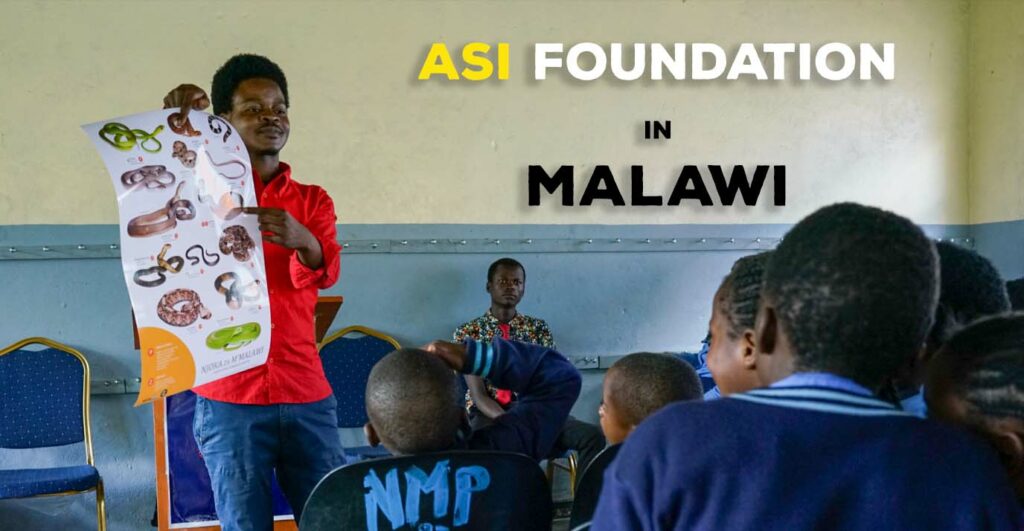
Snakebite in the Warm Heart of Africa
Malawi, a country renowned for its friendly people and its enormous lake, which harbors more fish species than any other freshwater body in the world! Through a break in the clouds, I catch a glimpse of the fishing villages which dot the shores of the distant lake, their shiny tin roofs glinting in the sun as our plane lazily soars through the sky on the final leg of our journey. This last, 30-minute flight brings us from Blantyre to Lilongwe, Malawi’s capital city. Below, an endless expanse of tiny maize fields fleets by. Most people in Malawi labor away on these small fields, planting them by hand to feed their families. As the African Snakebite Institute Foundation representitive, I am here to join my colleagues who have been championing snakebite work in the country. A collaboration of the Bernhard Nocht Institute for Tropical Medicine (BNITM) from Germany, the Ministry of Health, Neno district office, and Partners In Health / Abwenzi Pa Za Umoyo (APZU), an international organization operating in Neno district, to help spread awareness on snakebites, a disease that mostly impacts rural agricultural workers in the country by destroying livelihoods and taking lives.
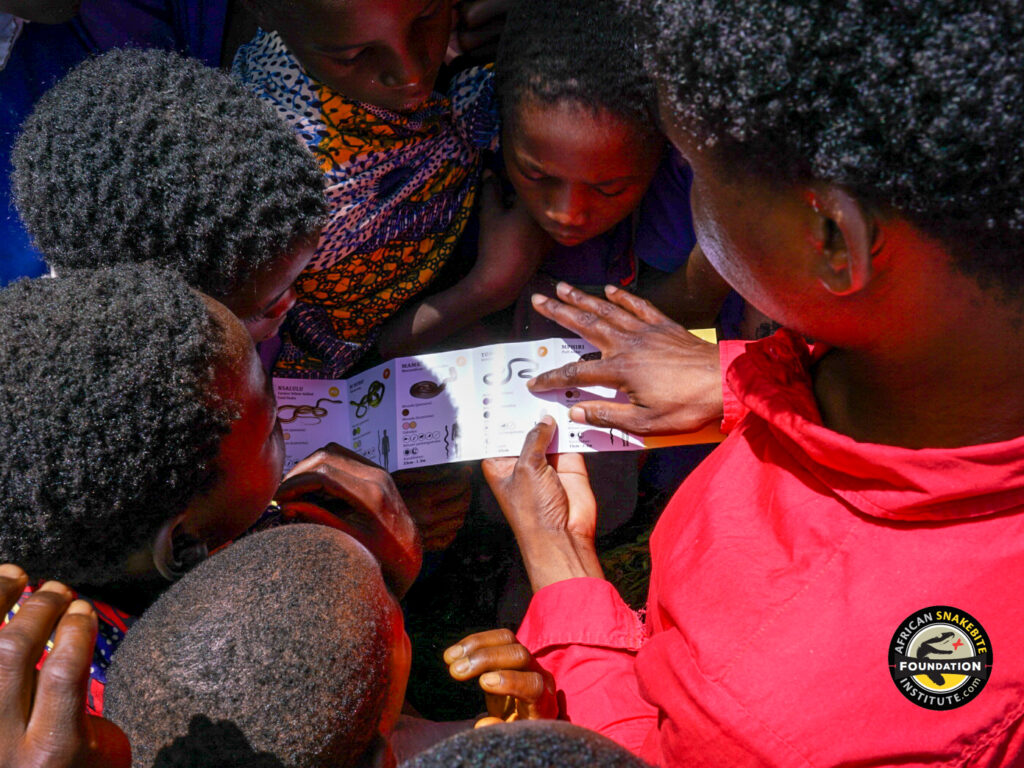
In 2023, BNITM set up a hospital partnership with the Ministry of Health – Neno District Hospital. The hospital partnership focuses on capacity building of healthcare workers, community awareness campaigns and increasing availability of snake antivenom in the district. The initiative is funded by the hospital partnerships programme of the Deutsche Gesellschaft für Internationale Zusammenarbeit (GIZ) GmbH, commissioned and funded by the German Federal Ministry for Economic Cooperation and Development (BMZ). The Else Kröner-Fresenius-Stiftung (EKFS) co-finances the funding programme on a part-financed basis.

The next afternoon, I find myself bouncing up a rugged road, accompanied by my good friend Joseph Tepani, a couple of hundred books, flyers and posters in the backseat and sloshing jerry can filled with smelly diesel, safely wrapped in a black refuse bag. We are on our way to the Neno District Hospital. The road, clearly unpassable the day before, tells the story of many epic battles fought by drivers before our arrival. I’m thankful to have gotten lucky; a good dose of sunshine has dried the slippery clay in time for our arrival. The hard crust crunches under the wheels of the Land Cruiser. Even it would have struggled to reach our destination had the road still been wet. Waiting for us is the one and only Moses Banda Aron. Moses is working with APZU and also doing his doctoral thesis on snakebites with the Neglected Diseases and Envenoming Group at BNITM. He’s a true Malawian, ever smiling and optimistic. “Most people with snakebites never report to the hospitals, we have more work to do to ensure that people know that snakebites are treatable and that healthcare providers has all the skills they require”, says Moses. Together with our collaborators, we are here to help speed up the process by spreading awareness about snakes and snakebites to the communities. A year before this, Joseph and I had been involved in the first training course of this hospital partnership for healthcare workers in Neno and Mwanza district hospitals. Now we are back, and we will not only build on this previous training, but also inform the community about where and how they can get help if they are bitten by a snake.
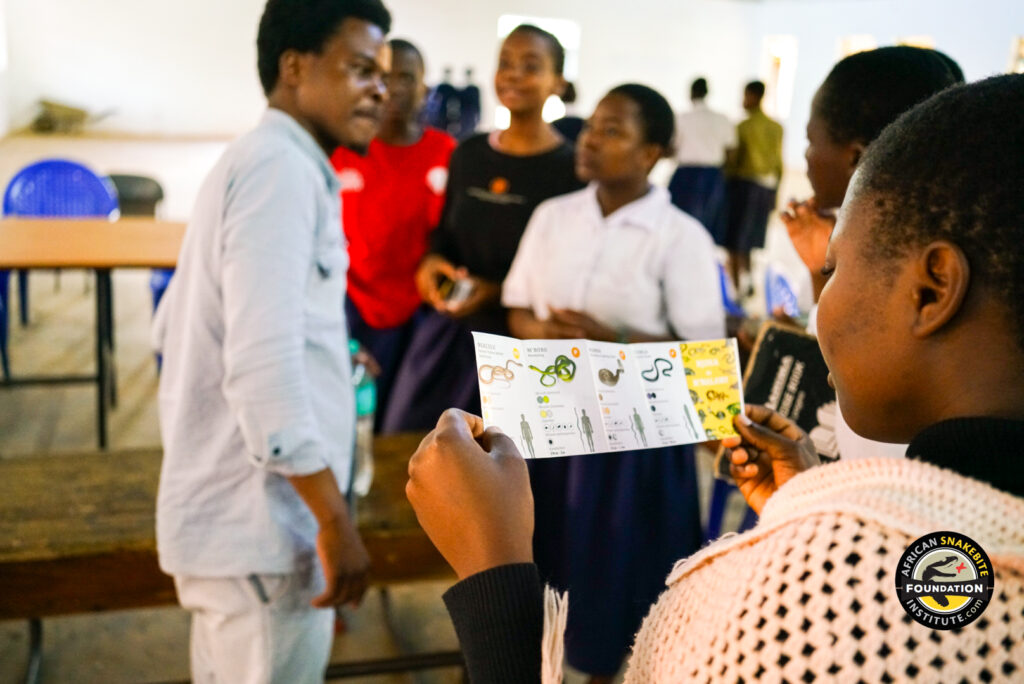
We aim to visit 7 schools before spending some time with the healthcare workers to go over treatment protocols and review cases from last year. The next two days are busy as we navigate the now dusty roads of Neno, racing from one school to another. The classrooms are packed with hundreds of students. Joseph, who is a schoolteacher by profession, does an excellent job of keeping the crowds under control as he passionately tells them interesting facts about snakes, making sure to emphasize the importance of visiting a hospital if one has been bitten. He doesn’t even have time to finish his last sentence before the little hands shoot up, flooding us with countless questions. It’s incredible to see how readily the students absorb the information. Students who can answer questions correctly are given a small booklet outlining the most common snake species found in the area. Two students, brave enough to summarize the talk in front of the entire school, even receive a copy of our brand-new book, ‘My Guide to Snake of Malawi’, which Joseph has translated to the local language, Chichewa. Our colorful snake identification posters find new homes in the school libraries, and we also donate a few more copies of our book. After just two days, we are astounded to see that we have reached well over 1600 students and teachers in the 7 schools we visited. The information spreads quickly through the communities. In the coming two days, we hear many shouts of “Njoka” (snake in Chichewa) from parents and children alike as our Land Cruiser rolls past pedestrians on our way to the next training sessions. We are happy to see that the information has spread far and wide in such a short amount of time!
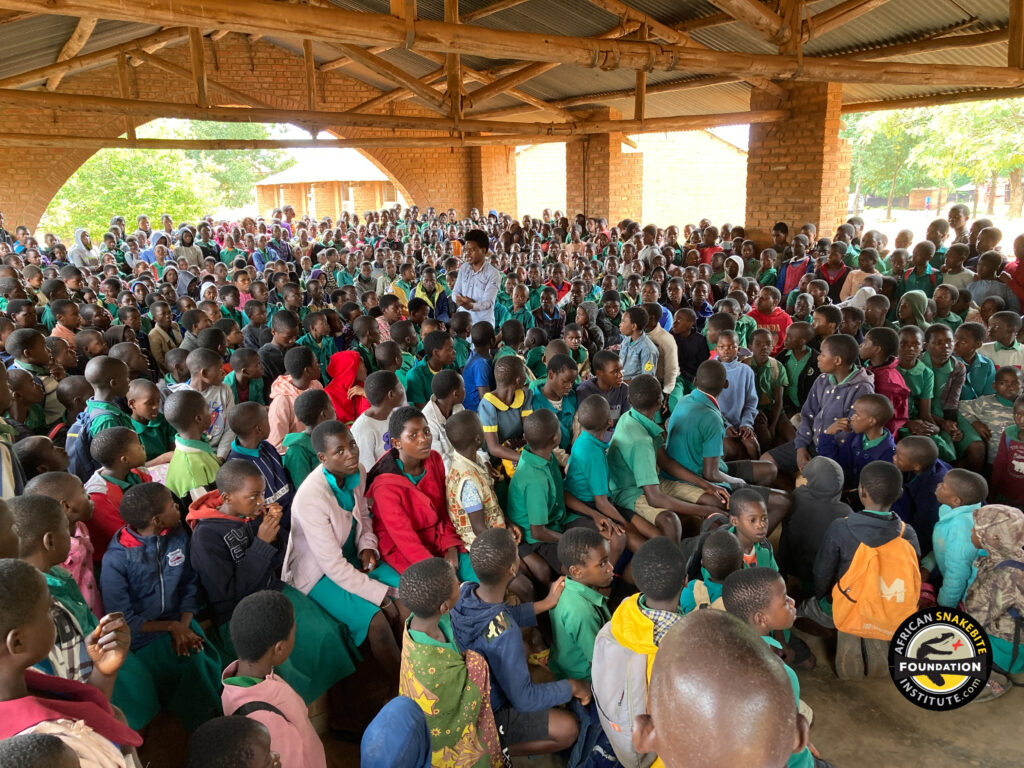
The following two days of healthcare worker training are also a success. We were joined by Dr. Paul Rahden from BNITM and Dr. Frank Kambili from Queen Elizabeth Central Hospital in Blantyre, Malawi. Over 90 clinicians and nurses are in attendance from all 15 health facilities in Neno District. During the course of these trainings we are greatly excited by the lively discussions that the participants have about improving snakebite management in this challenging environment. The questions are excellent and just go to show how great the need for this training is. We learn that most bites appear to be caused by Puff Adders, Stiletto Snakes and Night Adders. These snakes all have cytotoxic venom. This venom destroys the cells at the site of the bite, resulting in massive wounds that can take many months to heal, even if they are kept clean. Although most people survive these bites under normal circumstances, the aftermath is often devastating. Deformed limbs are not uncommon. Because most people rely on agriculture to survive, such permanent disabilities are often disastrous for entire families. The health providers in attendance are eager to do what they can to help prevent such outcomes. Thanks to the training, they are now equipped with the know-how of how to treat snakebites. The hospital partnership project has ensured that antivenom is available in Mwanza and Neno districts, meaning that doctors are now well equipped to handle most snakebite cases in the area.
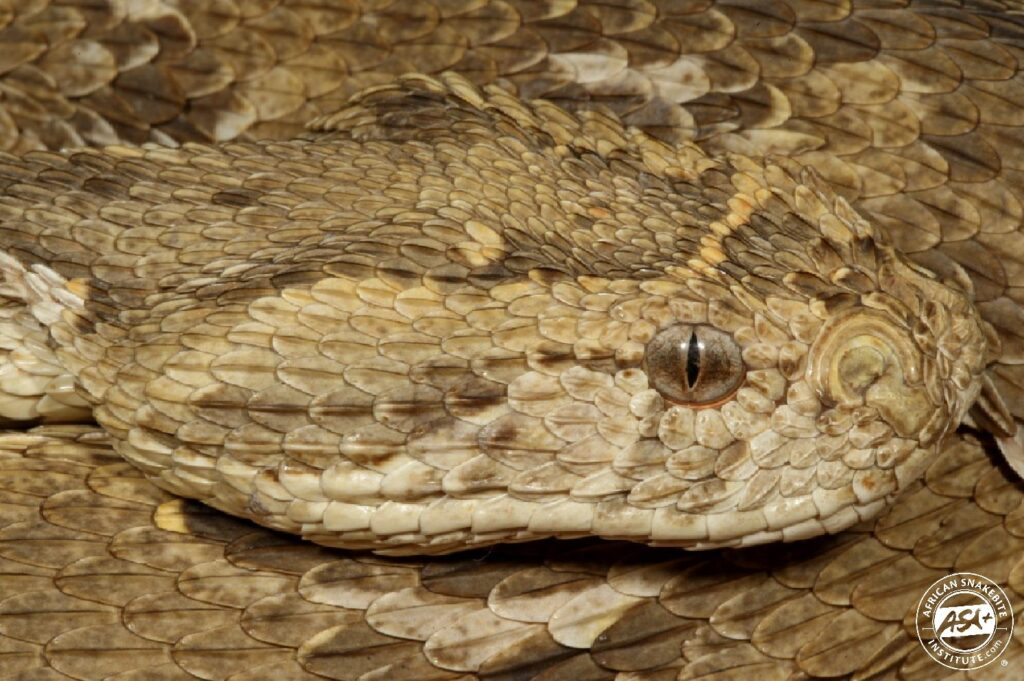
After 6 days, we leave Neno with a warm, fuzzy feeling in our hearts. We leave knowing that the start of a mindset change has happened. Instead of snakebite being regarded as a mystical, overwhelming and untreatable disease, it can now be seen for what it is, a condition for which medicine is available. A condition that can be healed. We are excited to see the knowledge spread to other parts of Malawi and ultimately throughout the whole continent. Although this project is now over, this is not the end of our work. Far from it! It is only the beginning; our vision is to one day spread these important truths throughout the entire continent, but to make this a reality, we need your help! By donating to the ASI Foundation, you can make it possible for more healthcare workers and school children to receive our awareness training. We thank you in advance for your generosity and admire you for wanting to help others!
CONTACT US:
Product enquiries:
Caylen White
+27 60 957 2713
info@asiorg.co.za
Public Courses and Corporate training:
Michelle Pretorius
+27 64 704 7229
courses@asiorg.co.za
 ASI Book Combo 1
ASI Book Combo 1
 ASI Book Combo 2
ASI Book Combo 2
 Rangers Book Combo 1
Rangers Book Combo 1
Want to attend the course but can’t make it on this date?
Fill in your details below and we’ll notify you when we next present a course in this area:
Want to attend the course but can’t make it on this date?
Fill in your details below and we’ll notify you when we next present a course in this area:
Want to attend the course but can’t make it on this date?
Fill in your details below and we’ll notify you when we next present a course in this area:
Want to attend the course but can’t make it on this date?
Fill in your details below and we’ll notify you when we next present a course in this area:
Want to attend the course but can’t make it on this date?
Fill in your details below and we’ll notify you when we next present a course in this area:
Want to attend the course but can’t make it on this date?
Fill in your details below and we’ll notify you when we next present a course in this area:
Want to attend the course but can’t make it on this date?
Fill in your details below and we’ll notify you when we next present a course in this area:
Want to attend the course but can’t make it on this date?
Fill in your details below and we’ll notify you when we next present a course in this area:
Want to attend the course but can’t make it on this date?
Fill in your details below and we’ll notify you when we next present a course in this area:
Sign up to have our free monthly newsletter delivered to your inbox:
Before you download this resource, please enter your details:
Before you download this resource, would you like to join our email newsletter list?